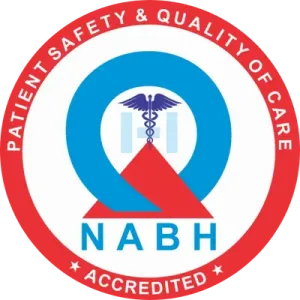Kidney Stone Myths vs. Facts: What You Should Know
Myth 1: Kidney Stones Only Affect Older Adults
Fact: While kidney stones are more common in adults, they can develop in people of all ages, including teenagers and children. Factors such as dehydration, poor diet, and genetic predisposition can contribute to the formation of kidney stones at any stage of life.

Myth 2: Drinking Less Water Prevents Kidney Stones
Fact: Staying well-hydrated is crucial for preventing kidney stones. Drinking an adequate amount of water helps dilute minerals and salts in the urine, reducing the chances of stone formation. Dehydration leads to concentrated urine, increasing the risk of kidney stones.
Myth 3: Calcium-Rich Foods Cause Kidney Stones
Fact: Many people believe that consuming calcium-rich foods leads to kidney stones, but the opposite is true. Calcium from dietary sources helps bind oxalates in the intestines, preventing their absorption into the bloodstream and reducing the likelihood of stone formation. It is excessive calcium supplements, rather than dietary calcium, that may contribute to kidney stone risk.
Myth 4: All Kidney Stones Are the Same
Fact: Kidney stones can be composed of different substances, including calcium oxalate, calcium phosphate, uric acid, struvite, and cystine. Each type has different risk factors and requires specific management strategies.
Myth 5: Kidney Stones Always Cause Severe Pain
Fact: Not all kidney stones cause significant pain. Some small stones pass unnoticed, while others may stay in the kidneys without causing symptoms. However, larger stones that obstruct urine flow can result in intense pain, nausea, and blood in the urine.
Myth 6: If You Get Kidney Stones Once, You Will Always Have Them
Fact: Having one kidney stone does increase the likelihood of developing another, but recurrence is not inevitable. Making dietary and lifestyle changes, such as staying hydrated and reducing sodium intake, can significantly lower the risk of future stones.
Myth 7: Home Remedies Can Dissolve Kidney Stones Completely
Fact: Some natural remedies, such as lemon juice and apple cider vinegar, may support kidney health but cannot dissolve large kidney stones entirely. Medical evaluation and treatment, including medications or procedures like extracorporeal shock wave lithotripsy (ESWL), may be necessary for larger stones.
Myth 8: Avoiding Oxalate-Rich Foods Completely Prevents Kidney Stones
Fact: While oxalate-rich foods, such as spinach and nuts, can contribute to kidney stone formation, completely eliminating them is not recommended. Instead, consuming them in moderation and pairing them with calcium-rich foods can help balance oxalate absorption and reduce the risk of stones.
Myth 9: Soda and Energy Drinks Directly Cause Kidney Stones
Fact: Although excessive soda and energy drink consumption can contribute to dehydration and increase the risk of kidney stones, they are not the sole cause. Reducing intake of sugary and acidic beverages and opting for water is a healthier choice for kidney health.
Myth 10: Surgery Is the Only Treatment for Kidney Stones
Fact: Many kidney stones pass naturally with proper hydration and pain management. Minimally invasive procedures such as ESWL, ureteroscopy, and laser lithotripsy can be effective treatments for larger stones. Surgery is only required in severe cases.
Tips for Preventing Kidney Stones
- Stay Hydrated: Drink at least 2-3 liters of water daily
- Maintain a Balanced Diet: Include calcium-rich foods and limit excessive oxalate and sodium intake.
- Reduce Salt and Sugar Consumption: High sodium and sugar levels increase the risk of kidney stone formation.
- Maintain a Healthy Weight: Obesity can be a contributing factor to kidney stone development.
- Regular Medical Check-Ups: If you have a history of kidney stones, consult a specialist for regular monitoring and preventive care.












